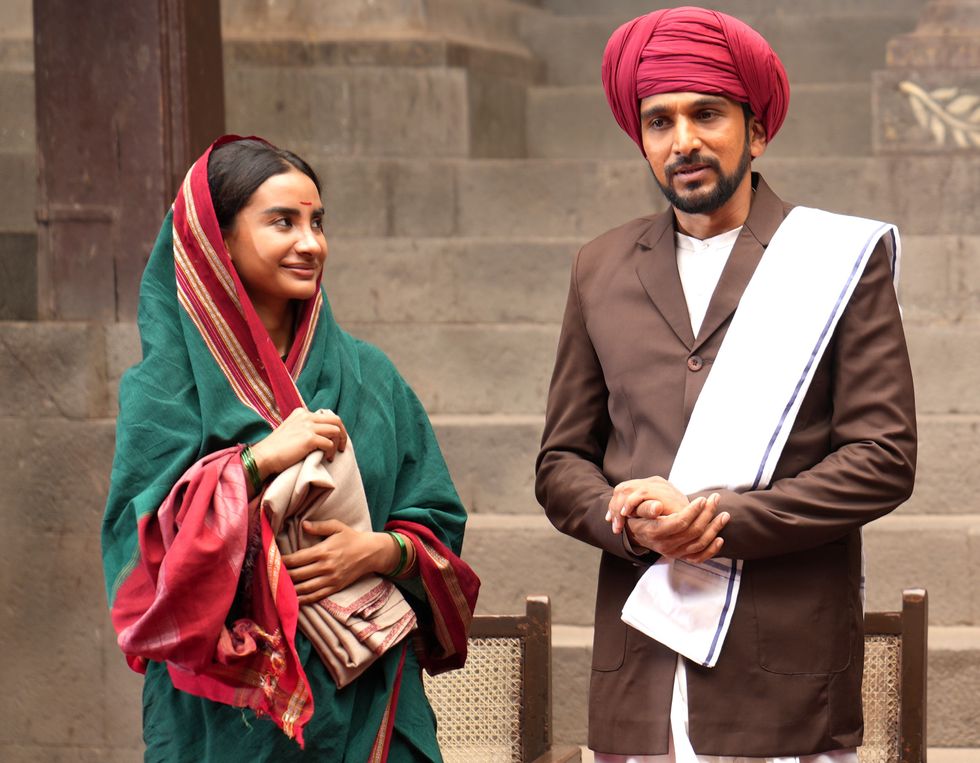Being part of a high-profile family hasn't shielded Soha Ali Khan from criticism especially when it comes to personal choices that defy conventional boxes. Despite her calm public demeanour, Soha recently shared how she continues to receive unwarranted remarks about her interfaith marriage with actor Kunal Kemmu, even a decade after tying the knot.
Soha and Kunal’s relationship has often been under public gaze, not because of their work in films or parenting approach, but because they come from different religious backgrounds. Married since 2015, the couple has been quietly raising their daughter, Inaaya, while often posting glimpses of their celebrations whether Diwali or Eid. But each post is met with an odd barrage of questions. “How many rozas have you kept?” is one of the recurring comments she sees if she shares a Diwali picture. During Holi, people ask, “What kind of Muslim are you?”

Soha, now used to such chatter, admits she’s built some emotional distance from it. “It doesn’t bother me,” she says. “But it’s still something I notice.” The way people react reveals more about society’s conditioning than about her own life, she adds.
What’s striking is that this scrutiny doesn’t just stop at religion. Soha has also been questioned for not having a son as though motherhood is incomplete without one. Even well-educated people around her have implied that she’s somehow “falling short,” despite being a hands-on parent to her daughter.

Soha believes much of this judgement stems from deeply rooted social expectations, ones her own family has resisted across generations. Her grandmother, for instance, fought to pursue higher education in an era when women weren’t encouraged to do so. Her mother, veteran actor Sharmila Tagore, too faced questions when she chose to act in films. But both women chose to live on their terms, and Soha sees her own freedom as a direct result of those choices.
“I married at 36, went to Oxford and LSE, became a mother later in life. Nobody questioned me and that’s because of the path carved before me,” she says.
In the end, Soha isn’t here to prove anything. Her life, lived simply and honestly, seems to be the only answer she needs to give.

















 A still from Phule
A still from Phule
 Miranda Priestly’s icy elegance and Andy Sachs' transformation set the standard for modern power dressingJio Hotstar Screengrab
Miranda Priestly’s icy elegance and Andy Sachs' transformation set the standard for modern power dressingJio Hotstar Screengrab Audrey Hepburn’s timeless little black dress remains a symbol of sophistication and styleYoutube Screengrab
Audrey Hepburn’s timeless little black dress remains a symbol of sophistication and styleYoutube Screengrab Cher Horowitz’s yellow plaid suit redefined 90s teen fashion with its bold preppy charmYoutube Screengrab
Cher Horowitz’s yellow plaid suit redefined 90s teen fashion with its bold preppy charmYoutube Screengrab Lady Gaga’s extravagant Gucci ensembles brought vintage luxury and dramatic glamour back to the forefrontPrime Video
Lady Gaga’s extravagant Gucci ensembles brought vintage luxury and dramatic glamour back to the forefrontPrime Video
 Rihanna strikes a bold bridal pose in Savage X Fenty’s new collectionInstagram/
Rihanna strikes a bold bridal pose in Savage X Fenty’s new collectionInstagram/ Rihanna’s playful cake-smash in bridal lingerie fuels fan theories about a secret ceremony with A$AP RockyInstagram/
Rihanna’s playful cake-smash in bridal lingerie fuels fan theories about a secret ceremony with A$AP RockyInstagram/ From Harriet the Spy to Gossip Girl, Michelle Trachtenberg’s acting career captivated generations of viewersGetty Images
From Harriet the Spy to Gossip Girl, Michelle Trachtenberg’s acting career captivated generations of viewersGetty Images